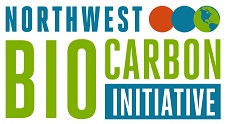British farmland missing huge natural benefits potential
Farm support programs that target only food production miss huge opportunities to generate natural benefits, a new British study documents.

This Climate Solutions program is no longer active.

The Northwest Biocarbon Initiative elevates the essential role that natural systems play in reducing carbon dioxide (CO2) in the atmosphere. By galvanizing the region’s emerging biocarbon community to develop strategies that increase natural carbon capture and build a vibrant restoration economy, we are positioning the Northwest as the nation’s leading incubator for biocarbon solutions.

By: David R. Montgomery and Slayde Hawkins Dappen on
Soil—humble, lowly, everyday dirt—is an essential, irreplaceable, and strategic resource.

By: Mitch Friedman on
NBI Advisory Committee member Mitch Friedman, who leads Conservation Northwest, was the first out of the gate to offer his reflections on the 2013 Northwest Biocarbon Summit.

By: David Hastings on
By preserving and expanding areas of coastal vegetation such as mangroves, sea grass beds, and marshes, we can mitigate some of the effects in burning fossil fuels and turn the tide on our rising greenhouse gas emission

By: Teresa Koper on
What agricultural practices have the most immediate potential for making a significant contribution to protecting our climate? Think biocarbon.

By: Wendy Peterman on
For over a decade, scientists have argued that mycorrhizal fungi should be included in models of global carbon cycling, but they have struggled with exactly how to incorporate below-ground microbia

By: Rhys Roth on
The only way back to Target 350 is to stop putting so much carbon pollution in the air and at the same time to remove a lot of the accumulated carbon from the air.

By: Chad Kruger and Allan Savory on
A conversation between Chad Kruger, Director of WSU Center for Sustaining Agriculture and Natural Resources, and Allan Savory, Presiden

By: Patrick Mazza on
Carbon dioxide levels hit 395 parts per million in 2012, the highest in four or five million years when sea levels were around 80 feet higher and temperatures up to 10° Fahrenheit hotter. If we sustain those CO2 levels, or go higher as we are doing, a completely different world will emerge.

By: Steve Whitney on
Urban green infrastructure is increasingly seen as an effective way to meet regulatory obligations for control of polluted runoff or high stormwater flows, while also generating an array of ecosystem service co-benefits.

By: Keeley O'Connell on
Tidal wetlands provide great potential to sequester and store greenhouse gases. Restore Americas Estuaries and EarthCorps are investigating the carbon sequestration value of tidal wetlands.
Join our email list to learn about what we do and how to get involved.
Farm support programs that target only food production miss huge opportunities to generate natural benefits, a new British study documents.
The message is spreading that changing the way agriculture is done can draw heat-trapping carbon dioxide out of the atmosphere into farm soils to improve the viability of agriculture overall.
On August 1, the City of Portland graciously hosted the Northwest Biocarbon Initiative (NBI) along with our partners at
The Northwest Biocarbon Initiative, City of Portland Bureau of Environmental Services, Ecotrust, and the Willamette Partnership provided a briefing on the climate and economic benefits of natural infrastructure in Portland and the Willamette Valley, announced the release of Natural Infrastructure: A Climate-Smart Solution, and led a 45-minute tour of multiple natural infrastructure projects in Portland's South Waterfront area.
Outside of humans, beavers have more impact on landscapes than virtually any other species. Now a new study reveals those hardworking animals not only build dams but biocarbon storage as well.
The President’s groundbreaking speech on climate change was an historic step to follow up on his message to Congress that if they don’t take action on climate change, he will. But will he now follow suit by taking even bolder actions on forests?
A capacity crowd of 160 thought leaders and innovators gathered on June 10, 2013 at the University of Washington's Center for Urban Horticulture in Seattle for the first-ever Northwest Biocarbon Summit.
One of the special highlights at the Northwest Biocarbon Summit–for me and many others–was a remarkable series of “Speed Talks” by real-world Northwest practitioners who brought to life the full portfolio of biocarbon solutions.
Soil—humble, lowly, everyday dirt—is an essential, irreplaceable, and strategic resource.